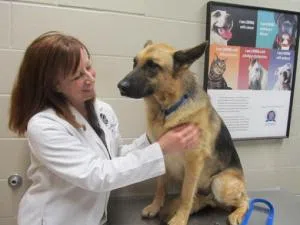
Cancer research going to the dogs at the U of S
From the petri dish to the dog bowl, cancer research at the University of Saskatchewan is now using dogs.
“Dogs are really the best model. They develop spontaneous tumors that are just like human tumours. They're treated in the same way, same chemotherapy,” said Troy Harkness, a professor in the Department of Anatomy and Cell Biology at the U of S College of Medicine.
He and other researchers from the U of S College of Medicine and the Western College of Veterinary Medicine are studying the effect of the drug, metformin, on drug-resistant lymphoma.
“People come back, dogs come back with untreatable cancer. So, our goal is to try to figure out how to treat those dogs that become drug-resistant,” he said.


